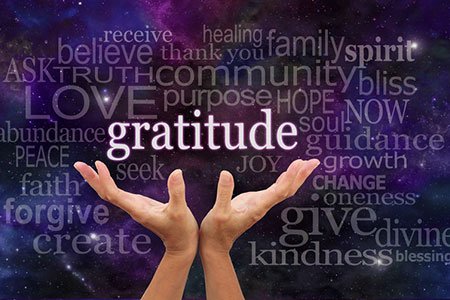grace
In The Grace Of Divine Time
 Several bald eagles flew in above me this morning, as I drove along a peaceful country road, which I travel several times a week. For the past month or so, I’ve been seeing these eagles roost in one particular area along my route.
Several bald eagles flew in above me this morning, as I drove along a peaceful country road, which I travel several times a week. For the past month or so, I’ve been seeing these eagles roost in one particular area along my route.
I usually see them poised in stillness upon the bare branches of the winter trees. But today, most of my sightings were of them circling in flight overhead, crossing back and forth over the road.
Sometimes they appeared to be pursuing their prey, other times leading their young, or simply enjoying the freedom of gliding through the sky beneath the beautiful morning sun. This occurred in several places along my journey, spanning a range of miles beyond the one roost and eagle family I’ve been witnessing.
Before, during, and after my way was bedazzled with this abundance of bald eagle beauty, my thoughts had been steeped in the topic of time. I sensed the eagles crossed my path to affirm and guide me in my contemplation of eternal time.
I also sensed they came as signs of a shift in my life. They were reminding me that what has been waiting in my life – energy that has been paused, stuck or still, resting, gathering, or incubating – is beginning to move on the horizon of visibility, and gradually gaining momentum.
When I arrived home, waiting in my mailbox was a pamphlet with the printed words: The Times Are Racing. Well, message received loud and clear! It’s time to express my appreciation of time.
The Power Of Prayer
 Many people only turn to prayer in times of extreme trouble or fear. I was brought up, however, in a home where one also said grace at mealtime, to give thanks for the food on the table. It is always a good idea to have gratitude for the food that nourishes our body. Prayers were also said before going to bed for the night, asking for good things for our family, as well as our friends, pets and life in general.
Many people only turn to prayer in times of extreme trouble or fear. I was brought up, however, in a home where one also said grace at mealtime, to give thanks for the food on the table. It is always a good idea to have gratitude for the food that nourishes our body. Prayers were also said before going to bed for the night, asking for good things for our family, as well as our friends, pets and life in general.
It’s my own belief that we come into this world with the knowledge of prayer. It is as natural as breathing, and just as important for our spirit. Prayers do not have to be said out loud to be heard by the Infinite Intelligence, or the energy known as God. The spirit world does not have rules or limitations. There is no time or place as in the material world.
After all, we are body, mind, and spirit. We are spirit residing in a physical body for a while, before we return to the spirit realm. Prayer is one of the ways to get in touch with the Other Side, the place that some call Heaven, our spirit home. Prayer can be a great comfort to those who believe in the hereafter, angels, saints and a God energy. If you are feeling alone in the world, prayer can make you feel a connection with your ancestors that have crossed over before you.
Extend Yourself The Grace Of Forgiveness
 If you are an empath you may believe that forgiveness should be easy for you, or at least easier than it is for others. But I’ve spoken to many empaths and highly sensitive people over the years who all struggle with forgiveness.
If you are an empath you may believe that forgiveness should be easy for you, or at least easier than it is for others. But I’ve spoken to many empaths and highly sensitive people over the years who all struggle with forgiveness.
One of the main issues with forgiveness for the empath is that we feel another’s emotions intensely, literally as our own. This muddies the waters considerably, because it tends to blur boundaries. Blurred boundaries can often lead to a closed mouth for an empath. Why? Because it is difficult for us, especially in childhood or in romantic relationships, to know where we end and another begins.
It is easy for others to manipulate appropriate boundaries with an empath, or to erase them altogether. All the empath knows is that there is pain, sadness, a sense of frustration, or anger. If you are an empath, then the question becomes are you angry with them, or yourself? Should you have been able to foresee the catastrophe happening, the relationship ending, job imploding, and so on. This leads to self-doubt and the rehashing of incidents that occurred years ago…with no resolution.
In the meantime, every time an empath thinks about the situation, past or present, we feel it…and the cycle continues.
Yes, you are empathic, intuitive, even psychic, but that does not make you immune to being human, neither does it make you all-knowing or all-seeing, especially when it comes to your own life, childhood or relationships.
The Power Of Gratitude In Difficult Times
 It is just as important to express gratitude and appreciation when we face the difficult times in our life, as it is when things are going well. In fact, it is even more important to express it during the hard times.
It is just as important to express gratitude and appreciation when we face the difficult times in our life, as it is when things are going well. In fact, it is even more important to express it during the hard times.
When our lives are on a downswing, the last thing on most people’s hearts or minds is to be thankful, or in a state of appreciation and joy. When we are struggling, our soul tends to be more aware of the negative energy of what is going on around us. This can ultimately attract the manifestation of even more negative energy, stressful situations and unpleasant events. In the end, even more bad days will come our way.
However, when we decide to stand strong and stop the downward spiral of our energy, and to be grateful for all of life’s lessons, whether good or bad, our energy begin to shift for the better.
When I pay my bills (a task that most of us really do not enjoy), I always write thank you under the last entry in my bank journal. When I think of the reason for doing this, especially when it means spending money on things that are not tangible and sitting in my hand, the explanation comes very easily. I am saying thank you for actually having the money to pay these bills – the hydro bill so I can have lights, the gas bill so I can have heat in the winter, the credit card bill for those urgent things I had to purchase, and the medical bill that allowed me to purchase the medication I need to keep my health in check, and so on. Even though these things may not be material things that I can feel or see every day, it means something at some point to make my life better.
The Challenge To Remain In The Light
 What is the one area of your life that you would prefer to improve or change entirely? Mine without question would be to remain in the Light.
What is the one area of your life that you would prefer to improve or change entirely? Mine without question would be to remain in the Light.
We live in a digital age, where we have instant access to information of all varieties… some truthful, others not so accurate. Once in a while this leads to something of value, but for the most part it is just a bombardment of noise, which is mostly designed to make us purchase and consume more products and services than we really need.
Scare tactics, for example, encourage us to buy more medication and nutritional supplements than any reputable doctor would recommend. Fearmongering convinces us to install excessive additional security for our homes. And airbrushed models tempt us into buying an endless assortment of goods that seldom add much value to our daily lives.
Meanwhile many of us have the tendency to complain about the government, the exorbitant rates charged for our monthly utility services, and the escalating cost of food and basic necessities.
The personal challenge for me is to allow myself the guilty pleasure of discussing any of these topics without vibrating into a negative state of mind. I can physically feel, in my body, the moment my energy starts to get into that negative energy frequency.
Healing Through Radical Self-Forgiveness
 There’s no getting around the fact that we’re our own worst critics. There has been much written on the subject of forgiving others, but what about forgiving ourselves? This is the first and most crucial step to real, lasting, healthy self-love.
There’s no getting around the fact that we’re our own worst critics. There has been much written on the subject of forgiving others, but what about forgiving ourselves? This is the first and most crucial step to real, lasting, healthy self-love.
The roots of the pain many of us feel are guilt and shame – the knowledge that we have wronged or hurt someone else, and the lasting fallout resulting in self-harm. Guilt is sometimes a catalyst to change behavior, but shame often comes with long-term effects, such as negative thinking patterns, self-harming behavior such as addiction, depression or anxiety, and self-sabotage.
Over long periods shame is like a poison in our bloodstream which touches every aspect of our lives. But it doesn’t have to last! There is a healthy way to overcome the legacies of shame and guilt, and it all starts with compassion.
A Spiritual Approach To Chronic Complainers
 Don’t complain, don’t ever complain. These are words I read in a book long ago, and they have stuck in my mind ever since. However, I certainly seem to have attracted a lot of complainers into my life – moaners and critics who have taken the very process to an art form! Amongst these individuals are family, friends and love relationships, and they are all challenging in their own way.
Don’t complain, don’t ever complain. These are words I read in a book long ago, and they have stuck in my mind ever since. However, I certainly seem to have attracted a lot of complainers into my life – moaners and critics who have taken the very process to an art form! Amongst these individuals are family, friends and love relationships, and they are all challenging in their own way.
I have come to the conclusion that the lesson those souls have given me, is to rise above the irritation, and perhaps to try and see their predicament and unhappiness from a place of compassion. I have since managed to become less affected by other people’s groaning, because I stopped thinking that their displeasure might be my fault, or that I could ‘fix’ them and turn them from a ‘cup-half-empty’ type of person to a ‘cup-half full.’